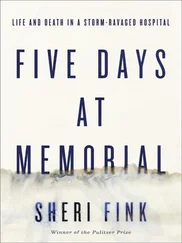Srebrenica evacuation to
Srebrenican medical staff in
U.N. sector headquarters in
U.N. Serb evacuation from
U.N. Srebrenica evacuation to
war resistance of
war’s effect on
Tuzla Canton
Tuzla hospital
surgery department chairman of
Tuzla medical school
Two Lions (restaurant)
Udrč Mountain
Ukranian U.N. battalion
Ulens, Hans
U.N. Bravo blocking positions
U.N. Bravo company
U.N. Camp Plešo
U.N. Central Emergency Trust Fund
U.N. Department of Peacekeeping Operations
U.N. evacuation commission
U.N. High Commissioner for Refugees (UNHCR)
Bosnia and
Bosnian evacuations and
Croatia and
Iraq and
militarization of humanitarian aid and
officials of
Serbia and
Srebrenica and
staff of
teams from
U.N. Military Observers (UNMOs)
ban on military flights over Bosnia and
Srebrenica mission of
U.N. peacekeeping forces
in Balkans
in Croatia
U.N. Protection Force (UNPROFOR). See also Dutchbat (Dutch U.N. Protection Force); Morillon, U.N. General Philippe
Bosnia military flight ban and
Bosnia-Herzegovina humanitarian aid protection by
Bosnian war ceasefire (April 17, 1993) and
bureaucratic problems of
combat reluctance of
“dual key” condition for action by
Operation Provide Promise and
peacekeeping v. peace enforcement of
Potočari evacuation and
safe areas and
Sarajevo and
Serb capture of soldiers of
Serb mistrust of
Serbs v.
Srebrenica forces v.
Srebrenica missions of
Srebrenica observation posts of
Srebrenican evacuation missions of
U.N. Sector North East
U.N. Security Council
Bosnian peace initiatives of
Bosnian war and
Bosnian withdrawal debates within
genocide prevention failure of
resolution enforcement reluctance of
Serbian atrocities and
Srebrenica and
U.N. Security Council Delegation to Srebrenica, accusations of Serb genocide by
U.N. Security Council Resolution (banning military flights over Bosnia)
U.N. Security Council Resolution 688 (Operation Provide Comfort)
U.N. Security Council Resolution 816 (enforcing Bosnian flight ban)
U.N. Security Council Resolution 819 (demanding Srebrenica “safe area”)
U.N. Security Council Resolutions (creating six safe areas)
U.N. See United Nations (U.N.)
UNHCR. See U.N. High Commissioner for Refugees (UNHCR)
United Kingdom. See Britain
United Nations (U.N.). See also U.N. Security Council; UNHCR; UNMOs; UNPROFOR
Article 51 of
Bosnian peace efforts by
Bosnian safe areas and
Bosnian war combat reluctance of
inefficiency of
intervention force idea for
member states’ combat reluctance in
military and humanitarian task division of
NATO air strikes on Serbs and
no-fly zone of
Serb reprisal reluctance of
Serbs and
Srebrenica protection failure of
Srebrenican lawsuit against
U.S./Bosnia emergency session of
Yugoslav arms embargo of
Yugoslav sanctions and Sarajevo airlift mission of
United States
Afghanistan and
Bosnia international stabilization force and
Bosnian atrocities and
Bosnian atrocity inquiries and
Bosnian war and
combat reluctance of
Contact Group peace proposal and
Croatian war and
Geneva Convention and
genocide prevention failure of
“lift and strike” proposal of
MSF inquiry demands on
NIOD and
Operation Provide Promise of
Serbia and
U.N. Bosnian emergency session and
U.N. Bosnian withdrawal debates and
U.N. Security Council Resolution 688 and
U.N. Security Council Resolution 816 and
U.N./Europe Bosnian peace plan and
Vance-Owen peace plan and
United States European Command
University of Sarajevo
UNMOs. See U.N. Military Observers (UNMOs)
UNPROFOR. See U.N. Protection Force (UNPROFOR)
U.S. Air Force 435th Air Wing
U.S. State Department
Afghanistan and
Bosnian atrocities and
lawsuit against
report on U.N.’s Bosnian relief failure by
Ustashe, Croat
massacres by
during World War II,
Ustić, Akif
Valium
Vance, Cyrus
Vance-Owen peace plan
Višnjica
Vitez
Vlasenica
Vukovar
1991 massacre in
bombing of
Vukovar hospital
MSF and Red Cross mission to
siege of
Wahlgren, UNPROFOR commander Lar-Eric
Bosnian war ceasefire (April 17, 1993) and
as head of U.N. forces in Balkans
Morillon and
reluctance to use force in Bosnia of
War crime tribunals
War justifications of Balkan combatants
Wiesel, Elie
Willems, Piet
family of
MSF Srebrenica mission of
surgeries of
war’s effect on
World Health Organization
World War I,
World War II,
Yugoslav Army Health Service
Yugoslav Army Medical Academy
Yugoslav Federation. See also Bosnia; Croatia; Macedonia; Montenegro; Serbia; Slovenia
ethno-religious makeup of
member republics of
Yugoslav National Army (JNA)
Bio-131-S and
mass killings by
MSF manipulation by
Vukovar and
Yugoslavia. See also Bosnia; Serbia; Yugoslav Federation; Yugoslav National Army (JNA)
Bosnian development by
Bosnia’s independence from
breakup of
Milošević’s rise in
post-Communist elections of (1990)
Serb backing by
slogan of
U.N. arms embargo on
Zagreb
UNPROFOR in
Zalazje
Zeleni Jadar
Žepa
evacuation of
safe area of
Serb Republic of Bosnia and
Serb takeover of
Zotikov, Dr. Sergei
Zvijezda mountain
Zvornik
Zvornik hospital
Zvornik Light Infantry Brigade, 1st

PUBLICAFFAIRs is a publishing house founded in 1997. It is a tribute to the standards, values, and flair of three persons who have served as mentors to countless reporters, writers, editors, and book people of all kinds, including me.
I. F. STONE, proprietor of I. F. Stone’s Weekly, combined a commitment to the First Amendment with entrepreneurial zeal and reporting skill and became one of the great independent journalists in American history. At the age of eighty, Izzy published The Trial of Socrates, which was a national bestseller. He wrote the book after he taught himself ancient Greek.
BENJAMIN C. BRADLEE was for nearly thirty years the charismatic editorial leader of The Washington Post . It was Ben who gave the Post the range and courage to pursue such historic issues as Watergate. He supported his reporters with a tenacity that made them fearless, and it is no accident that so many became authors of influential, best-selling books.
ROBERT L. BERNSTEIN, the chief executive of Random House for more than a quarter century, guided one of the nation’s premier publishing houses. Bob was personally responsible for many books of political dissent and argument that challenged tyranny around the globe. He is also the founder and was the longtime chair of Human Rights Watch, one of the most respected human rights organizations in the world.
* * *
For fifty years, the banner of Public Affairs Press was carried by its owner, Morris B. Schnapper, who published Gandhi, Nasser, Toynbee, Truman, and about 1,500 other authors. In 1983 Schnapper was described by The Washington Post as “a redoubtable gadfly.” His legacy will endure in the books to come.
Читать дальше













